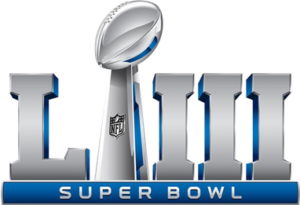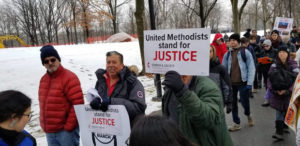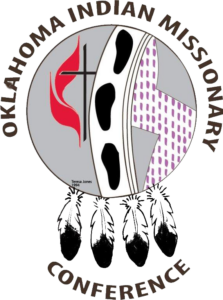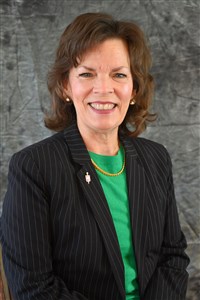By The Rev. David Wilson
 What I look forward to at Super Bowl LIII is something that won’t be there. With the Rams verses the Patriots, there are no need for tomahawk chops or mocking drum beats from the stands. This will hopefully be a Super Bowl with the absence of degrading and derogatory chants toward Native Americans. What a novel concept. The mascots for the top two football teams in the world do not tout race-based derogatory mascots. It’s proof that sports teams do not need to dehumanize a race or ethnic group to make money or to be commercially successful.
What I look forward to at Super Bowl LIII is something that won’t be there. With the Rams verses the Patriots, there are no need for tomahawk chops or mocking drum beats from the stands. This will hopefully be a Super Bowl with the absence of degrading and derogatory chants toward Native Americans. What a novel concept. The mascots for the top two football teams in the world do not tout race-based derogatory mascots. It’s proof that sports teams do not need to dehumanize a race or ethnic group to make money or to be commercially successful.
Had the Kansas City Chiefs made the playoffs, our conversation would be severely different. To Native peoples, our culture and heritage are an important part of who we are and how we define ourselves. It was a moment of deep pride to join in the recent Indigenous Peoples March in Washington D.C. and to see hundreds of Indigenous peoples from around the world marching in their authentic tribal regalia with all kinds of designs, colors and symbols. It reminded me of the diversity of Creator God’s beautiful creation! No one deserves to see their heritage insulted or mocked. Yet, from elementary schools to professional sports Native Americans have been dehumanized and stereotyped all in the name of team loyalty and brand.
 I think some Americans are starting to get it. The Cleveland Indians will stop using the Chief Wahoo logo on their uniforms this year. We have seen a number of schools across the country change their “Redskins” or “Indians” mascot to something less offensive. These are small steps in the right direction. For years, The United Methodist Church’s Book of Resolutions included language to prevent church meetings from being held in cities with Native American mascots. This language was not included in the 2016 version. The implications have been interesting. The General Board of Global Ministries moved its headquarters to Atlanta, home of the “Braves.” The Youth 2019 national event will take place in Kansas City, home of the “Chiefs.” In both instances, concerted efforts are being made to educate participants and the surrounding communities about the impact of mascots on Native people. While my preference was to avoid meeting in these cities, the extra education effort is a positive outcome.
I think some Americans are starting to get it. The Cleveland Indians will stop using the Chief Wahoo logo on their uniforms this year. We have seen a number of schools across the country change their “Redskins” or “Indians” mascot to something less offensive. These are small steps in the right direction. For years, The United Methodist Church’s Book of Resolutions included language to prevent church meetings from being held in cities with Native American mascots. This language was not included in the 2016 version. The implications have been interesting. The General Board of Global Ministries moved its headquarters to Atlanta, home of the “Braves.” The Youth 2019 national event will take place in Kansas City, home of the “Chiefs.” In both instances, concerted efforts are being made to educate participants and the surrounding communities about the impact of mascots on Native people. While my preference was to avoid meeting in these cities, the extra education effort is a positive outcome.
While some people mistakenly believe that mascots are harmless or even respectful, the mascots actually represent a long-running dehumanization of Native peoples. A study commissioned in 2013 by the Oneida Nation states that if Native Americans are shown images of stereotypical Native American mascots their self-esteem goes down, belief in community goes down, belief in achievement goes down, and mood goes down. The study stated these effects were primarily among Native American adolescents. Similarly, if someone who is non-Native sees a stereotypical image of Native American mascot, their association with the Native American community also gets worse.
It’s more than past time to eliminate the use of Native American symbols and images as team mascots. Any sports fan in the world can play a role in creating this needed change.
Local churches around the country will use the super bowl as an opportunity to raise funds and awareness for hunger through the Souper Bowl of Caring Sunday. Thousands of dollars will be raised to address hunger in local communities. It is great to see good things connected with the joy that sports brings to many.
It will be nice to know that many are making a difference in their communities. My hope is that others can use their communities and settings to learn more about the use of Native American symbols and images and why they are important in our communities For now, I’m happy to tune into the Feb. 3, 2019 showdown with a sense of peace that I can sit back and enjoy the game between two professional teams that have nothing to do with me as an indigenous person.
Wilson is superintendent of the Oklahoma Indian Missionary Conference.


